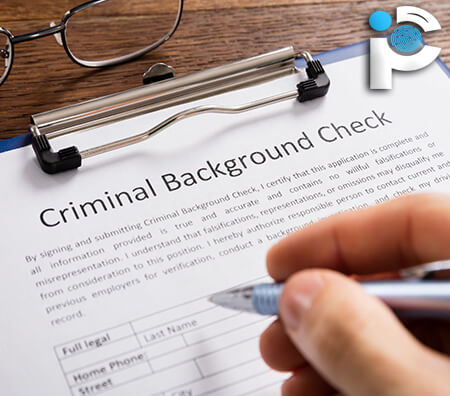How to Check Criminal Records (UK): Essential Information
March 11, 2024 - Reading time: 13 minutes
Updated on: September 3, 2025
There are many situations where you may need to verify criminal history in the UK. Employers use checks to assess a candidate’s suitability and safety for a role. Individuals may want to view their own record, and in some cases the police can disclose risk information to protect children or potential victims.

Quick Navigation
How to Check Someone’s Criminal Record in the UK
In England and Wales, criminal record checks are handled by the Disclosure and Barring Service (DBS) and are commonly called DBS checks. Scotland uses Disclosure Scotland, and Northern Ireland uses AccessNI. The level of check you can request depends on the purpose and legal eligibility.
Personal Checks: can you check someone else?
As a general rule, you cannot run a DBS check on another adult for personal curiosity. There are limited safeguarding routes where the police may disclose information to protect children or potential victims. Avoid any attempt to obtain someone’s record without proper authority, and never impersonate an employer or agency.
How to Check Your Own Criminal Convictions
You can apply for a Basic DBS check on yourself. This shows unspent convictions and conditional cautions. Apply online via the GOV.UK website. You will verify your identity and provide recent address history.
In Scotland, use Disclosure Scotland. In Northern Ireland, use AccessNI.
Employers Checking a Candidate’s Criminal Record
Employers can request:
- Basic DBS – shows unspent convictions. Available for any role.
- Standard DBS – shows spent and unspent convictions, cautions, reprimands, and warnings. Only for roles legally eligible.
- Enhanced DBS – includes the above plus relevant police-held information. For positions working closely with children or vulnerable adults.
- Enhanced with Barred Lists – checks the DBS barred lists to see if the person is prohibited from regulated activity.
Guidance on eligibility is on GOV.UK. Employers usually apply via a registered umbrella body or their organisation’s DBS account. Only request the minimum lawful level for the role and handle results in line with data protection law.
Inquiry for Child Sex Offenders (Sarah’s Law)
The Child Sex Offender Disclosure Scheme (CSODS), known as Sarah’s Law, lets anyone with a concern for a child’s safety ask police if a person has a history that may pose a risk to children. Apply through your local police force, by calling 101, or by visiting a station. Disclosures are made to the person best placed to protect the child and must be kept confidential. For emergencies call 999.
Inquiry Into a History of Violence or Abuse (Clare’s Law)
The Domestic Violence Disclosure Scheme (DVDS), known as Clare’s Law, allows you to ask police about a current or former partner’s violent or abusive past. There is a Right to Ask and a Right to Know. The police decide what is proportionate to disclose to help keep you safe. Apply via your local force or call 101. If you feel at risk, call 999.
Background Checks from Private Investigators
DBS results are narrow by design. For a wider view of someone’s background, consider a lawful background check service. We use publicly available information and open sources to add context, for example:
- Court record searches that can show appearances even where no conviction resulted.
- Open-source intelligence across news, corporate filings, property records, and insolvency data.
- Social media reviews to understand online activity and potential risks.
We do not access private banking or medical data, nor do we impersonate authorities. All enquiries are conducted lawfully and proportionately. For advice or a free quote, visit our homepage or contact us.
Frequently Asked Questions
What is shown on a Basic, Standard, and Enhanced DBS?
Basic shows unspent convictions and conditional cautions. Standard adds spent convictions, cautions, reprimands, and warnings. Enhanced includes the Standard level plus any relevant police-held information. Some Enhanced checks can include barred list status for eligible roles.
Can I run a DBS on my partner or neighbour?
No. DBS is not for personal curiosity. If there is a safeguarding concern, consider Sarah’s Law for risks to children or Clare’s Law for domestic abuse history via the police.
How long do DBS checks take?
Basic checks can be quick. Standard and Enhanced depend on police force processing times and can take longer, especially if multiple addresses or jurisdictions are involved.
Will spent convictions always show?
Spent convictions appear on Standard and Enhanced checks, subject to filtering rules. Some old or minor records may be filtered. Employers should only request the lawful level for the role.
Do private investigators see more than DBS?
DBS is an official record. Investigators cannot access private records without authority, but can lawfully broaden context using public sources and open records to help inform risk decisions.
Related Articles
You are reading the PrivateInvestigators-UK blog — home to the UK's leading detective agency. Learn more about us by visiting our homepage PrivateInvestigators-UK.com.